Alcohol use disorder (AUD) affects as many as 28.6 million people over age 18 in the United States. This includes more than 16 million men and over 12 million women. Further, AUD can affect people from all ethnic groups. Excessive alcohol intake can be one of the first early warning signs of alcoholism.
Excessive alcohol consumption can have detrimental effects on your health and potentially lead to loss of life. Between 2015 and 2019, 140,000 people lost their lives to excessive alcohol use. Read on for some key warning signs of alcoholism.
What Is Moderate vs. Excessive Alcohol Consumption?
A standard alcoholic drink contains about 1.2 tablespoons (14 grams) of alcohol, which is roughly equal to one 12-ounce beer, 5 ounces of wine, 8 ounces of malt liquor, or 1.5 ounces of liquor at 80-proof. Drinking in moderation means limiting alcohol intake to two drinks of this size a day for men and one drink a day or less for women.
Excessive drinking, by contrast, is heavy or binge-drinking. Binge drinking involves consuming five drinks or more for men and four drinks or more for women on one occasion. Heavy drinking is 15 drinks or more a week for men and 8 drinks or more per week for women.
Short-Term Health Risks of Excess Alcohol Use
Consuming a large amount of alcohol can have immediate negative effects that can put you at risk of dangerous consequences that can put your physical and mental health at risk, such as:
- Injuries such as car crashes, accidental drownings or falls
- Violence, including intimate partner violence, suicide, homicide or sexual assault
- Alcohol poisoning due to excess alcohol levels in the blood
- Miscarriage, stillbirth and fetal alcohol spectrum disorder among those who are pregnant
- Risky sexual behaviors that heighten the risk of sexually transmitted diseases and unintended pregnancy
Long-Term Health Risks of Excess Alcohol Use
Using excessive amounts of alcohol for long periods can contribute to several serious health problems and chronic diseases, such as:
- Mental health issues, including anxiety or depression
- Weakened immune system
- High blood pressure, stroke and heart disease
- Liver disease
- Digestive issues
- Memory and learning problems
- Social challenges, such as family problems or difficulty keeping a job
- Development of alcohol dependence or AUD
- Certain types of cancer, including breast, liver, colon, rectal, throat, mouth and voice box
7 Early Signs of Alcohol Addiction
Most people do not develop an alcohol addiction quickly, unlike with some other substances. Instead, the addiction develops with time and often with excessive alcohol use. Therefore, it is important to be aware of the early signs of becoming an alcoholic. Take a look at some of the early signs of alcohol dependence.
1. Drinking Alcohol Excessively
Not everyone who drinks in excess will develop AUD, but this is often one of the first indications of alcoholism. Many people who develop alcohol dependence start binge drinking or drinking in excess during certain social occasions. It is not uncommon for a person to drink more than most people at a party or be known as the one who can “drink everyone else under the table.” Over time, someone who drinks in excess may start to drink even more than usual as his or her tolerance increases, and he or she needs more to achieve the same state of intoxication as before.
2. Losing Control When Alcohol Is Involved
It is not uncommon for those developing alcoholism to show signs that they struggle to maintain control over alcohol. For instance, individuals may start saying they will only have a few drinks, but once they start drinking, they do not stop until they reach a state of extreme intoxication. They may even make promises to their loved ones about how they will keep their intake in check, but fail to do so after the first drink.
3. Obsessing About Drinking Alcohol
Addiction comes along with an almost obsessive outlook when it comes to abused substances. With alcohol, this often means spending an egregious amount of time thinking about alcohol and how you will get it or even where you will go to drink. To onlookers, this warning sign may not be obvious at first, but these individuals often have a difficult time not thinking about alcohol when they are with loved ones, at work or otherwise.
4. Continued Alcohol Use Despite Negative Consequences
Missing work, problems with personal relationships, legal woes, spending too much money — excessive drinking can have a lot of negative impacts. However, people developing alcoholism will continue to drink excessively even when they recognize doing so is causing problems. Denial with addiction is common. Therefore, outsiders will often point out the negative consequences of excess alcohol consumption before the person using admits there is an issue.
5. Trying to Stop With No Success
In some cases, individuals will recognize warning signs of drinking too much alcohol, and they will try to stop on their own. However, the urge to drink becomes too strong, and they will return to drinking. This seemingly early form of relapse can be a hallmark symptom of alcohol addiction, but it is not always taken seriously because there can be brief periods between uses. Yet, if individuals make resolutions to quit but fail to avoid drinking, even with short breaks when they are not using alcohol, this can be a sign of alcoholism.
6. Heightened Alcohol Tolerance
One of the most easily overlooked problem signs of alcoholism is a heightened tolerance to alcohol. Individuals will start to need more alcohol to become intoxicated than they did when they started drinking. For example, instead of needing five beers, they may need seven or eight. They may even begin to binge drink to a greater degree to reach an inebriated state.
Unfortunately, this heightened alcohol tolerance poses significant risks because a person’s blood alcohol content can be elevated without feeling drunk. Nevertheless, the alcohol can pose the same health risks despite not feeling impaired.
7. Withdrawal Symptoms Without Alcohol
Withdrawal from alcohol can start looking like a simple hangover. For instance, individuals may wake up feeling hungover after drinking too much the night before, so they will drink again to feel better. With time, this cycle can lead to alcoholism. However, with time and continued use, withdrawal symptoms from alcohol become even more severe. Individuals may experience an upset stomach, fatigue and even tremors when they don’t have enough alcohol in their system.
Find Help for Alcohol Use Disorder
Alcohol use disorder may occur slowly, and it may not look the same for every individual. However, finding treatment as soon as a problem is recognized is vital. Vanguard Behavioral Health offers personalized treatment plans for individuals struggling to overcome alcoholism. We provide a comprehensive treatment plan tailored to the client’s needs and have several options available for treatment, including inpatient and outpatient programs.
If you would like to know more about alcohol abuse treatment in Albuquerque, reach out today.








